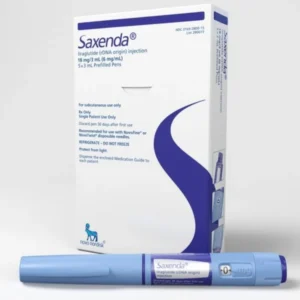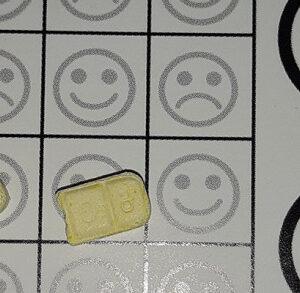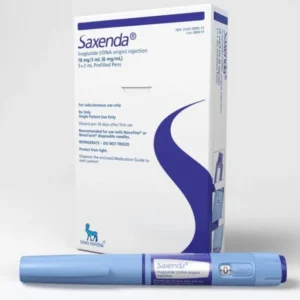diazepam nz
$148.00
Helps you to relieve anxiety
Part of the anxiolytic-benzodiazepine group
Also effective for the treatment of insomnia
Genuine Medication
Shipped from NZ Pharmacies
diazepam nz
Diazepam is a medication commonly used to treat anxiety, muscle spasms, and seizures. It belongs to the benzodiazepine class of drugs and works by enhancing the effects of a neurotransmitter called gamma-aminobutyric acid (GABA) in the brain. It is also effective in managing symptoms of alcohol withdrawal.
What should I know while using Arrow – Diazepam?
Things you should do
• Remind any doctor, dentist or pharmacist you visit that you are using Arrow – Diazepam.
• Do not take any other medicines without first telling your doctor.
• Call your doctor straight away if you become pregnant while taking Arrow – Diazepam.
Things you should not do
• Do not take Arrow – Diazepam for a longer time than your doctor has prescribed.
• Do not stop taking Arrow – Diazepam or lower the dose without first checking with your doctor,
especially if you have epilepsy.
• Do not let yourself run out of medicine over the weekend or on holidays.
Driving or using machines
• Do not drive or operate machinery until you know how Arrow – Diazepam affects you.
Drinking alcohol
• Alcohol may increase the effects of Arrow – Diazepam. Your doctor may suggest that you avoid alcohol
or reduce the amount of alcohol you drink while you are using Arrow – Diazepam.
Looking after your medicine
• Store below 30°C.
• Store in a cool, dry place away from young children.
Storage
- Store at Room Temperature: Diazepam should be kept at room temperature, away from light and moisture. Ensure that it is stored in a secure location, out of reach of children.
Dosage and Administration
- High Doses: It is important to follow your healthcare provider’s instructions regarding dosage. High doses of diazepam can increase the risk of side effects and dependence. Avoid increasing the dose without consulting your doctor.
Precautions
- Liver Disease: If you have liver disease, inform your healthcare provider, as diazepam is metabolized in the liver. Adjustments to your dosage may be necessary to avoid complications.
When to Call Your Doctor
- Call Your Doctor: If you experience any unusual symptoms, increased sedation, or signs of an allergic reaction, contact your healthcare provider immediately. It’s crucial to discuss any concerns or side effects you may have while taking diazepam.
-
Indications
- Muscle Spasms: Diazepam is commonly prescribed for the relief of muscle spasms associated with various conditions, providing effective muscle relaxation.
- Myasthenia Gravis: Patients with myasthenia gravis should use diazepam with caution. This condition can cause muscle weakness, and the use of benzodiazepines may exacerbate these symptoms.
Precautions
- Muscle Weakness: If you experience muscle weakness while taking diazepam, it is crucial to inform your healthcare provider. Adjustments to your dosage may be necessary to prevent complications.
- Alcohol Withdrawal: Diazepam is often used in the treatment of alcohol withdrawal syndrome. It helps alleviate symptoms such as anxiety, agitation, and tremors during the detoxification process. However, it should be used under strict medical supervision to avoid dependence.
-
Withdrawal Symptoms
- Withdrawal Symptoms: Discontinuing diazepam suddenly can lead to withdrawal symptoms, which may include anxiety, agitation, tremors, and seizures. It is crucial to taper off the medication under medical supervision to minimize these risks.
Alcohol Interaction
- Drinking Alcohol: Combining diazepam with alcohol can enhance the sedative effects, leading to increased drowsiness, respiratory depression, and a higher risk of overdose. Patients are advised to avoid drinking alcohol while taking diazepam.
Considerations for Older Adults
- Older Adults: Caution is advised when prescribing diazepam to older adults due to an increased risk of sedation, falls, and cognitive impairment. Healthcare providers may need to adjust dosages for this population to ensure safety.
diazepam side effects:
Common Side Effects
- Drowsiness: Increased sleepiness or sedation is one of the most common side effects.
- Dizziness: Some users may experience dizziness or lightheadedness.
- Fatigue: A general feeling of tiredness or lack of energy.
- Confusion: Particularly in older adults, diazepam can cause confusion or difficulty concentrating.
Serious Side Effects
- Respiratory Depression: This can be life-threatening, especially when combined with other central nervous system depressants like alcohol.
- Allergic Reactions: Symptoms may include rash, itching, swelling, or difficulty breathing.
- Severe Withdrawal Symptoms: If diazepam is discontinued abruptly, withdrawal symptoms can occur, including anxiety, tremors, and seizures.
Specific Considerations
- Older Adults: They may be more susceptible to side effects such as sedation, dizziness, and confusion, increasing the risk of falls and injuries.
- Pre-existing Conditions: Those with a history of substance use disorder, liver disease, or respiratory issues should use diazepam with caution.
can i take 2mg diazepam with venlafaxine nz?
yes, Combining **diazepam** (2 mg) with **venlafaxine** can be done, but it should always be under the guidance of a healthcare provider. Here are a few important considerations:
Potential Interactions
1. **CNS Depressant Effects:** Both medications can cause sedation, dizziness, and increased risk of respiratory depression. Monitoring is essential.
2. **Individual Response:** Each person’s response to medications can vary. Factors such as age, overall health, and other medications can influence safety.
3. **Consult Your Doctor:** Always check with your healthcare provider before combining these medications. They can evaluate your specific situation and adjust dosages if necessary.
Conclusion
While some patients may safely take diazepam with venlafaxine, it’s crucial to consult with your healthcare provider to ensure safety and avoid potential interactions.
where to buy diazepam nz?
what’s the difference between clonazepam and diazepam?
Clonazepam and diazepam are both medications belonging to the benzodiazepine class, but they have different uses, effects, and pharmacokinetics. Here’s a comparison of the two:
1. **Indications**
– **Clonazepam:**
– Primarily used for the treatment of seizure disorders (e.g., epilepsy).
– Often prescribed for panic disorders and anxiety.
– **Diazepam:**- Commonly used for anxiety relief, muscle spasms, and seizure management.
– Also used for alcohol withdrawal symptoms and as a premedication for medical procedures.
2. **Onset and Duration of Action**
– **Clonazepam:**
– Has a slower onset of action compared to diazepam.
– Generally has a longer duration of action, making it suitable for chronic conditions.
– **Diazepam:**
– Acts more quickly, providing immediate relief for acute anxiety or muscle spasms.
– Shorter duration of action compared to clonazepam, often requiring multiple doses for ongoing treatment.
3. **Half-Life**
– **Clonazepam:**
– Has a longer half-life (approximately 20-50 hours), allowing for less frequent dosing.
– **Diazepam:**
– Shorter half-life (approximately 20-100 hours), but its active metabolites can prolong its effects.
4. **Side Effects**
– Both medications can cause similar side effects, including drowsiness, dizziness, and risk of dependence. However, individual experiences may vary.
5. **Withdrawal Symptoms**
– Both drugs can lead to withdrawal symptoms if discontinued abruptly, but the severity and duration can differ based on dosage and duration of use.
Conclusion
While clonazepam and diazepam are both benzodiazepines used for managing anxiety and seizures, their specific indications, onset times, durations of action, and pharmacokinetics differ. It’s essential to use these medications under the guidance of a healthcare provider to determine the most appropriate treatment for your condition.
can you take diazepam and naproxen together?
Taking **diazepam** and **naproxen** together is generally considered safe for most individuals, as there are no significant direct interactions between the two medications. However, there are some important considerations:
Considerations
1. **CNS Effects:** Diazepam is a central nervous system (CNS) depressant, which can cause drowsiness, dizziness, and sedation. Naproxen is a nonsteroidal anti-inflammatory drug (NSAID) and does not have these effects. However, if you experience sedation from diazepam, be cautious with activities that require alertness.
2. **Gastrointestinal Issues:** Naproxen can cause gastrointestinal irritation or bleeding, especially with long-term use. If you have any history of stomach issues, discuss this with your healthcare provider.
3. **Consult Your Doctor:** Always check with your healthcare provider before starting or combining medications, especially if you have existing health conditions or are taking other medications.
Conclusion
While diazepam and naproxen can typically be taken together, it’s essential to follow your healthcare provider’s advice to ensure safety and proper management of any side effects.










Reviews
There are no reviews yet.